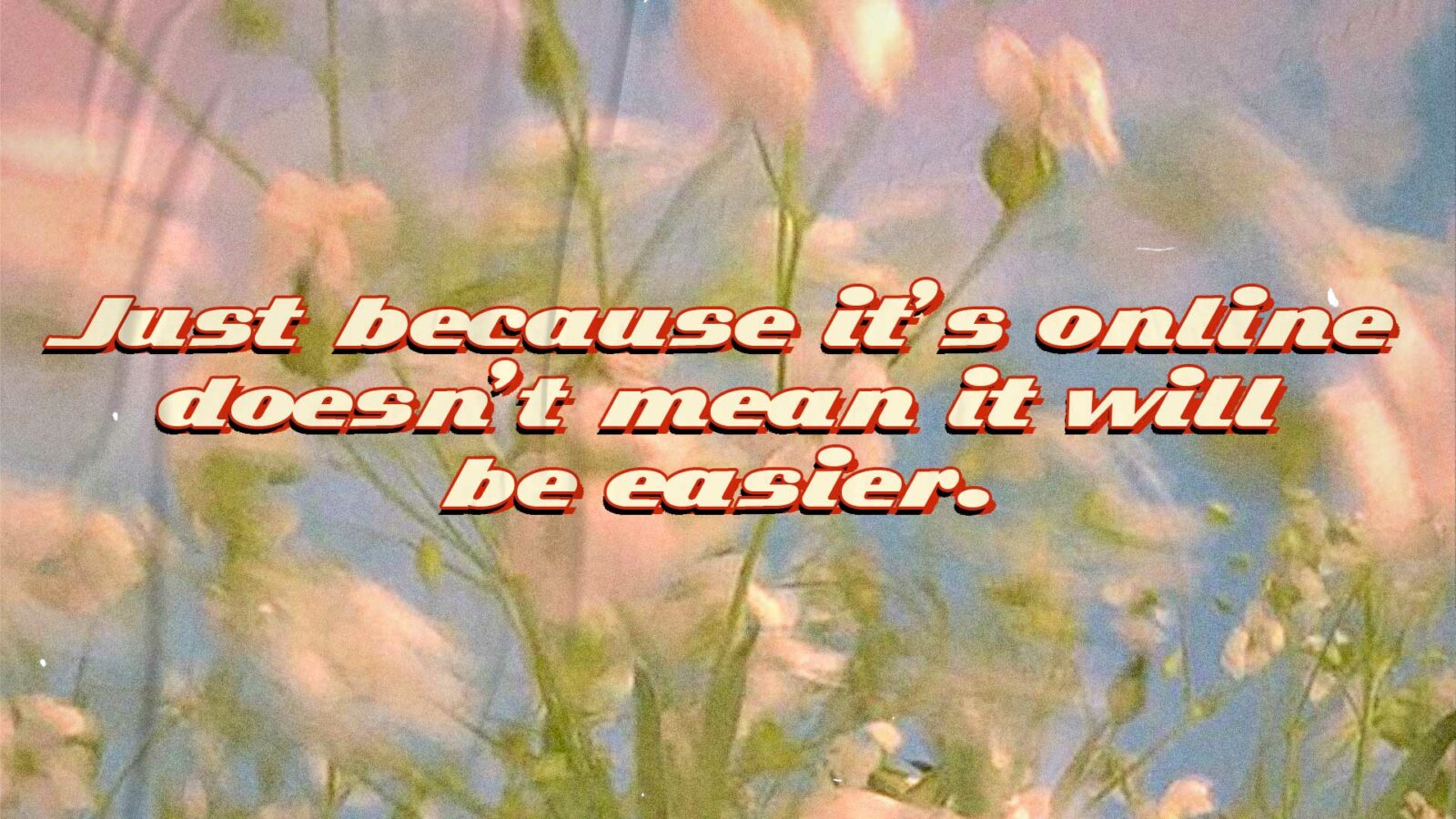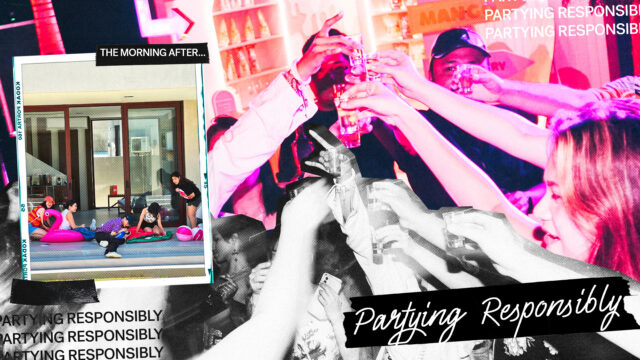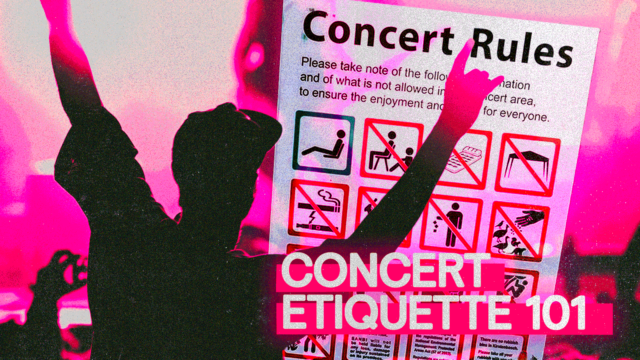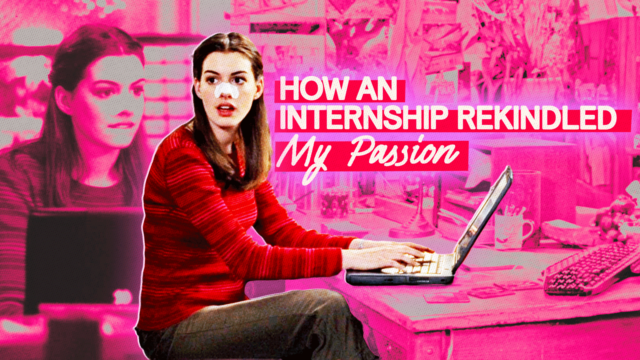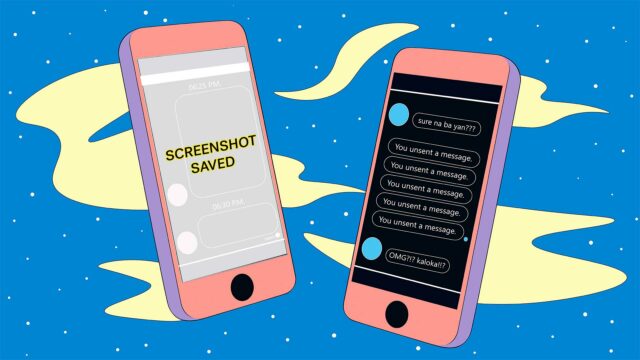They come from different backgrounds, study in different schools, and take different subjects, but they all agree that online learning was anything but a walk in the park.
RELATED: This Is What The Workplace Thinks About The Gen Zs
Online learning has become the new norm ever since the start of the pandemic. This of course brought its own set of issues and struggles such as academic loopholes and students who do not have access to stable internet. For students who had access to the internet, they soon realized that online learning was a whole different kind of ride. Stories started to spread on social media about burnout and calls to have academic breaks. Recently, some schools and universities have announced an academic break, but others have not, which furthered the debate on student wellness. To see what it’s really like to go through online learning, we reached out to some students to ask them their thoughts on online learning.
“I initially thought that I’d be able to handle it.”
The students we talked to had a mix of excitement and nervousness when they learned that classes were going to be continued online. Sam, an Industrial Engineering major from UP Diliman, was curious about what kind of experience online learning would be like. “I was excited about the prospect of purely online learning as I thought things such as asynchronous class would be an opportunity for me to have more flexibility with my time,” she says.
Ralph, who is taking his master’s degree in Applied Mathematics at the Ateneo de Manila University, says that he was “quite worried as a lot of our course work requires students to work in groups in preparation for our capstone project.”
As the semester went on though, those initial feelings soon turned into tiredness and trepidation.
Jay, a former 1st-year law student from the UP College of Law, described going through online learning as “debilitating, and considering the method of instruction, almost dehumanizing.” Ralph adds, “There were several times during the past year where I lost motivation doing schoolwork and thought of settling for a passing grade, which I usually don’t do.”
Sam described a semester in which he had a 21-unit load and PE as incredibly challenging detailing, “I would usually spend most of the week doing schoolwork and chasing the next deadline. It felt like we had to complete 5 months’ worth of requirements in 3 months.”
It wasn’t all doom and gloom though as there were some things the students did enjoy about online learning. Mikey, a Biology major from UP Diliman, liked that he could “learn on my own terms and at my own pace relative to the other people.”
In this virtual setup, Sam could spend more time with his family and dog since he’s just home, while Ralph didn’t have to spend an hour traveling to school and could just re-watch the online sessions if he didn’t understand any part of the lesson during the synchronous session.
But it was clear that online learning had more challenges than benefits. Since he was just home, or as he describes it, “trapped just studying for all my waking hours,” Jay hated how he would wake up “with a headache of some sort, or that I’d begrudgingly attend online class waiting for the inevitable humiliation thrown my way by my professor.”
Mikey disliked how professors would just give him the readings but never meet with the class. Sam, meanwhile, believes that online learning “doesn’t give an equal opportunity for everyone to learn” and that there were students who were struggling because of COVID-19 and the lack of
equipment to participate in online classes.
He also points out that he had a difficult time because of the sheer amount and difficulty of the requirements. “There are times where I spend several days straight studying for one subject, only to deal with an immense backlog the following week.”
“No one is having a good time.”
The difficulties they had in online learning were not unique to them as their classmates experienced it as well. Sam and Ralph both felt that they adapted better to the online set-up than their classmates, but knew of classmates who struggled. Ralph had a classmate who was busy with tasks given to her by her parents every day, which made it hard for her to focus on her academics.
“A lot of my classmates struggled with internet issues or having too much noise in their homes to concentrate on online class,” Sam says. Mikey furthers that among his classmates, “no one is having a good time.” Jay felt that the scorn and embarrassment he received when he would make a mistake during recitation was shared amongst his classmates.
It wasn’t just students who had a hard time adapting to the new online environment, but so too did the teachers, which Sam noticed. “It’s been much harder for professors, especially those who are unfamiliar with how to use online tools such as power points or videos.”
This struggle to adapt negatively impacted the students as Sam comments “[The shift to online learning] has affected the quality of their teachings which is awful for students and faculty…it has really taken a toll on our workload.”
With almost a year being spent online learning, they all agreed that there was a change in how they see and handle online learning now compared to when they began. At first, Ralph would feel exhausted just after listening to two lectures and then be very unproductive afterward. Now, he says that he has “gotten used to the set-up as I know how to study more efficiently.”
Sam meanwhile had the opposite experience. “When online learning first began, it seemed like there was potential for things to work out and for the semester to be a good one,” he explains. However, it became much harder to balance the workload, to a point where you really needed to sacrifice your time that was being spent on other things to catch up on the backlog.”
The experience has also changed the way Mikey approaches his studies. “At first, you think it will be fun, but once all the exams and papers start piling up, you end up asking for deadline extensions every week.”
“Studying just enough to pass is better than trying to excel but end up feeling burnt out.”
For better or for worse, the pandemic and the new setup have greatly changed the way they looked at and approached their education. The online set-up made Ralph “laxer not because the classes felt easier (because it actually is harder than usual), but due to my lack of motivation to do anything academic-related.” He adds, “I felt that studying just enough to pass is better than trying to excel but end up feeling burnt out.”
He also says that he saw his studies as “a coping mechanism to distract me from the sad reality out there,” but “as the semester progressed with requirements piling up, it made me see my studies as simply fulfilling
requirements rather than focusing on the quality of learning of the students.”
The online learning set-up was so intense on Jay that he “definitely felt the pressure bearing down on my mental health to an almost unbearable degree.” The pressure was too much on Jay to handle that he eventually decided to call it quits. “After I carefully considered how the stress had impacted me, I decided to withdraw from law school altogether.”
But Jay does see a silver lining as leaving law school meant that he could “pursue other graduate degrees much earlier than I had planned.” He’s currently thinking of taking a master’s in history in the future.
“Just because it’s online doesn’t mean it will be easier.”
Online learning is a divisive topic, to say the least. When asked what they wanted people to know about online learning, they had a variety of responses.
“It certainly isn’t easy. Having to wake up in the morning beside your workstation—knowing that you’d be sitting in the same seat where you were grilled and humiliated by your professor…is demoralizing enough to make you want to quit,” says Jay.
“Just because it’s online doesn’t mean it will be easier. Expecting more load compared to regular classes is unfair because it not only increases the difficulty of a course but decreases the time spent for yourself even further” adds Mikey.
Sam shares that “In order to create an online learning experience that is beneficial for students and professors, it really takes time, coordination, and patience. Students need to give feedback and faculty need to continue working on improving course materials for us to be able to make the system better for everyone.”
“You are not beholden to anyone.”
Finally, burnout is a sadly relevant topic among students with stories on social media of students who can no longer focus on studying and feel worn out. The students we talked to expressed how it’s okay to take a break if you need to. Sam feels that “students and professors need to be given the time to be able to take a break and spend time to take care of themselves as online learning can be very taxing for an individual’s mental health.” Jay adds, “You are not beholden to anyone in choosing to delay your education for the sake of self-preservation. If you think that online learning isn’t for you, I highly recommend meditating on this feeling.”
Ralph wants people to know that “It is okay to take a lot of breaks when you do not feel like doing anything academic-related as if you force yourself when you are unmotivated nothing will be absorbed by your brain. Also, resting for a whole day is still being productive.”
Continue Reading: The State Of Education: Is The Blended Learning Approach Working For The Filipino Youth?
